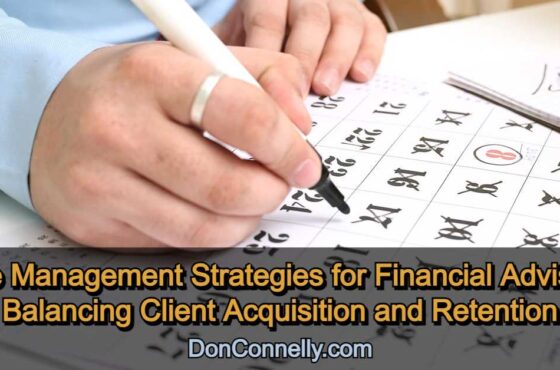Sacrificing Instant Gratification
I was talking with an advisor in Beverly Hills and she asked me a question. She actually made an observation, but it was in the form of a question. She said to me that she finds it a bit odd that financial success is a function of delayed gratification in a world that insists on instant gratification. Do I have any thoughts about that? And the answer is ‘Yes, I do!”
Listen to this audio episode or read the transcript below to learn what Don Connelly thinks about sacrificing instant gratification.
Let me begin by saying this: Next to the family doctor, you, the advisor, are the most important person that family is ever going to meet. What you can do for people is literally nothing short of miraculous.
Achieving financial success however does necessitate sacrificing instant gratification. But that takes discipline, it takes vision, and actually it takes both discipline and vision.
I think coupling a vision story with a teaching story is really effective at impacting client behavior.
A teaching story that explains what long-term investing really means is far more effective than simply advising a person to think long term. Telling someone to think long term or be long term is as ineffective as telling someone to be patient. Both concepts are nebulous at best. Examples work far better than directives.
Now a vision story paints the future in vivid colors. A teaching story shows the way to achieve that vision. So great stories told by charismatic advisors stir up emotions. And sacrificing instant gratification for a long-term reward is an emotional decision. As coveted as instant gratification may be, it often works to a person’s disadvantage. Giving it up is not always a bad thing – tell them that. A piece of chocolate cake is great short term. Too much chocolate cake spells trouble in the long run. Well, spending that money today is great short term. But overspending spells trouble in the long run.
The need for instant gratification kills patience. And a lack of patience kills the concept of long-term investing. The younger generations today have grown up waiting for nothing. That means you, the advisor, have to learn to curb the impatience of other people. That is a process, not an event, so be patient.




